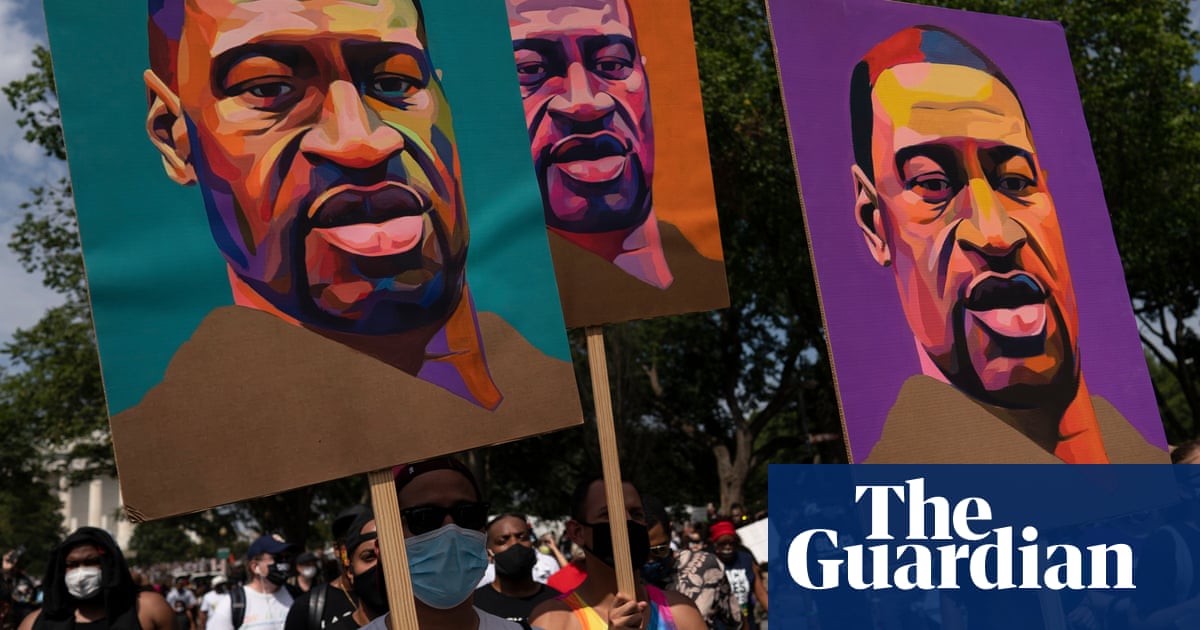This 25 May marks the fifth anniversary of the police killing ofGeorge Floyd, a Black man in Minneapolis, Minnesota, whose murder sparked international protests against police brutality and racism.
A new study bythe Pew Instituteexamines the beliefs of American adults regarding race and racial issues five years after Floyd’s death.
In June 2020, 67% of US adults expressed support for theBlack Lives Matter movement, a decentralized social and political movement that started in 2013 after the killing ofTrayvon Martin.
In 2023, nearly nine in 10 Americans said that they had seen videos of police violence against Black people, like the one that brought widespread awareness to Floyd’s death. At the time, 45% of American adults believed that the sharing of these videos was “a very or somewhat good thing”, while 65% of Black adults and 68% of Democrats held that belief.
There was a wide partisan divide in belief in whether such videos could hold police accountable. While 76% of Democrats believed that they could, that percentage was only 50% for Republicans.
Three months after that summer of nationwide protests, 52% of US adults said that increased focus on issues of race and racial inequality would lead to changes that would improve the lives of Black people. By 2025, however, 54% of US adults said that the relationship between police and Black people in the country was about the same. Only 11% believe that things are better, while a third says that things are worse. There are partisan differences in these views as well: 39% of Republicans say that the relationship between police and Black people is worse, while that number is 28% for Democrats.
“The justice system is not fair when it comes to Black people,” a Black Republican in their mid-40s said in the survey. “When convicted of crimes, Black people always get heavier sentences than their White counterparts, even when they have no prior convictions and come from similar backgrounds as their White counterparts.”
The 2020 protests were followed by a far-right backlash, one in which efforts towards diversity were walked back. Five years later, Trump, the president under whom the protests took place, is in office again. Eighty-two per cent of Democrats and 14% of Republicans believe that Trump will make things worse, while 53% of Republicans and 5% of Democrats believe that Trump will make things better.
“We have started moving backwards in the equal rights progression we’ve made over the years,” a white Democrat in their mid-30s said. “With a president like Trump who is getting rid of Black History Month, inclusivity and special initiatives that ensure people of color and underrepresented people will have equal opportunities, this will surely set us back decades.”
Today, 52% of US adults express support for theBlack Lives Matter movement– a drop of 15 percentage points from 2020. Since then, there has been a consistent decrease in US adults’ feelings towards the impact of the protests. In September of 2020, 52% of US adults believed that the increased attention to racism and racial issues would lead to changes that would improve the lives of Black people in the country , and by 2023, 40% believed that that had happened. That number has dropped to 27% today.
Five years later, nearly three-quarters, or 72%, of American adults said that the increased focus on race and racial inequality after Floyd’s killing did not lead to changes that improved the lives of Black people.
During the summer of 2020, many companies, celebrities and organizations issued statements in support of diversity, equity and inclusion (DEI); 80% of American adults in July 2020 said that they had seen or heard companies and organizations making statements about race and racism, with only 19% believing that the companies were expressing genuine concern about the treatment of Black people in the country.
Sign up toHeadlines US
Get the most important US headlines and highlights emailed direct to you every morning
after newsletter promotion
Just three years later, the supreme court ended affirmative action. Influenced by far-right activists, many educational institutions, along with private and public companies have walked back the DEI promises they made just half a decade prior. This year, following his inauguration, Trump signed an executive order ending DEI in the federal government.
A white Republican in their mid-70s, who believes that the country has gone too far emphasizing race, said: “The country has forgotten [Martin Luther King] Jr’s ‘I’ve got a dream speech’ content concerning judging others on their character rather than the color of their skin.”
Today, 49% of adult Americans are unsure that Black people will ever have equal rights with white people – that number was 39% in 2020.
